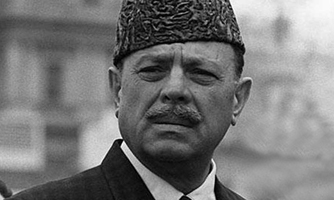The Revolutionary Leader of Pakistanâs Military Rule
General Ayub Khan remains one of the most controversial figures in Pakistan’s history. As the country’s first military ruler, his rise to power in 1958 marked the beginning of an era of military dictatorship. His legacy, shaped by both his achievements and shortcomings, continues to evoke debate in modern-day Pakistan.
Early Life and Career
Ayub Khan was born on May 14, 1907, in a small village in the British Raj, now part of Pakistan. He joined the British Indian Army in 1928, eventually rising to the rank of General. His military career in the British Indian Army set the stage for his later role in Pakistanâs military.
The 1958 Coup and Rise to Power
In 1958, Pakistan was experiencing political instability with widespread corruption, economic challenges, and military dissatisfaction. On October 7, 1958, President Iskander Mirza, facing increasing pressure, declared martial law. However, within a few weeks, Ayub Khan, who was then the Commander-in-Chief of the Pakistan Army, ousted Mirza in a bloodless coup. Ayub Khan assumed the presidency and began his rule with a vision to stabilize the country.
Ayub Khan’s Era: Reforms and Challenges
Under Ayub Khan’s leadership, Pakistan underwent significant political and economic changes. His government implemented several reforms:
- Constitutional Changes: Ayub Khan introduced a new constitution in 1962, which concentrated power in the presidency. This gave him almost dictatorial authority, reducing the power of the parliament and strengthening his control over the state.
- Economic Growth: The Ayub regime saw impressive economic growth, particularly in the industrial sector. His policies favored the development of industries, including textiles, and promoted foreign investments. Pakistanâs GDP grew during the early years of his rule, and urbanization accelerated.
- Green Revolution: The agricultural sector also benefited from Ayub Khanâs policies, which brought about the Green Revolution in Pakistan. The introduction of new farming technologies and high-yield crops increased food production and contributed to agricultural growth.
However, his rule was not without its challenges. By the mid-1960s, Ayub Khan’s popularity began to wane due to rising economic inequality, political repression, and the failure to address the demands of the common people. The 1965 war with India, although resulting in a military stalemate, also became a source of criticism, as many blamed Ayub Khan for not achieving a decisive victory.
The End of Ayub Khan’s Rule
In the 1960s, mass protests and growing dissatisfaction with his regime led to Ayub Khan’s eventual downfall. In 1969, after significant pressure from political opponents and the military, he handed over power to his successor, General Yahya Khan. Ayub Khanâs resignation marked the end of nearly a decade of military rule.
Legacy and Impact
Ayub Khanâs legacy remains a subject of intense debate in Pakistan. While he is credited with introducing reforms that contributed to economic development, his authoritarian style of governance and the concentration of power in the hands of the military have been widely criticized. His regimeâs failure to address the political and social demands of the population contributed to the instability that followed his resignation.
Despite the criticisms, Ayub Khan played an undeniable role in shaping Pakistanâs political landscape. His era was marked by both rapid growth and deep political discontent, setting the stage for future political developments in Pakistan.
Conclusion
General Ayub Khanâs tenure as Pakistanâs president and military ruler was a period of immense change. His policies of industrialization, modernization, and constitutional reform left a lasting imprint on the country. However, his authoritarian rule and failure to address underlying political issues led to his eventual downfall. The story of Ayub Khanâs leadership is a testament to the complex interplay between military power and political change in Pakistan.
For a deeper understanding of Pakistanâs history, check out this article on Pakistanâs political history.
